
Natalie Fox
Responsible tourism is travel conducted in such a manner as to not harm nor degrade the cultural, economic or natural environment and its wildlife, of places visited. Here is a list of invaluable responsible travel tips for your next adventure.
How Tourism Impacts Countries & Wildlife
Tourism is a growing industry, with The UN World Tourism Organisation reporting 1.3 million International tourist arrivals in 2017. The forecast is that this number will reach 1.8 million in 2030. With the surge in global travel, The World Travel and Tourism Council has identified a number of sustainability goals, noting it has “a unique role to play by providing an economic rationale for the protection of endangered species.”
Wildlife tourism, specifically, is also a growing sector. The World Tourism Organisation estimates that 7% of world tourism relates to wildlife tourism, growing annually at about 3%. This could, and already is, creating a huge impact on natural ecosystems and animal species. An analysis of the 2008 IUCN Red List of Threatened Species reported in 2008, that different forms of wildlife trade were the second major threat to endangered mammals.

Get Clued Up On The Country You’re Visiting
Global travel is a fantastic way to open our minds to other cultures, habitats and the animals that live there; yet these social-ecological systems can be very different to our own. As always, awareness is key – of course, we travel to learn, but having an idea of what world we’ll be stepping into beforehand is wise, rather than turning up completely unprepared.
Asia is renowned for its wild elephants, whose numbers are struggling; the Indian, Sumatran and Sri Lankan are all critically endangered. A 2017 report by World Animal Protection revealed “3,000 elephants used for tourist entertainment in Asia are kept in severely-cruel conditions”, with any elephant in captivity having been trained or rather, broken.
Orangutangs and monkeys in Indonesia are in danger of being taken from the wild, as well as facing habitat destruction. International Animal Rescue points out the slow loris, a small, nocturnal primate, is “highly prized as a pet and the victim of a craze created by online videos”.
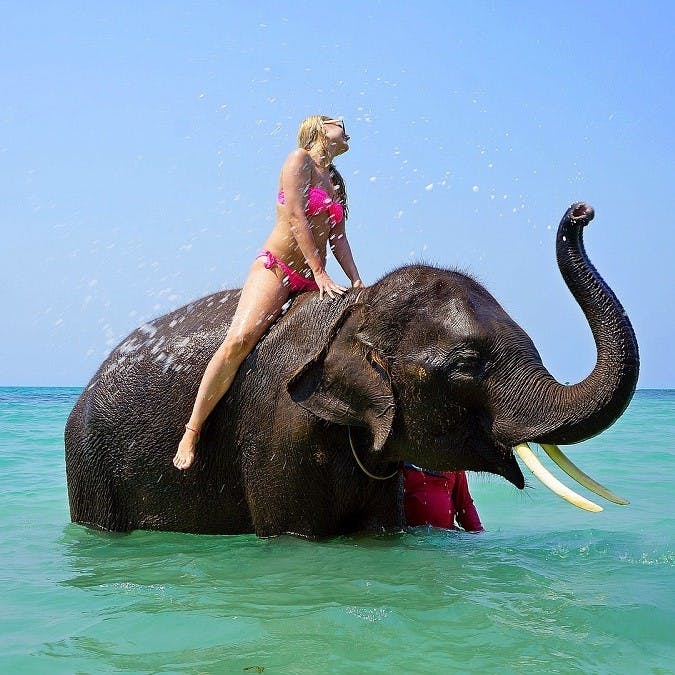
Members protect against the pet trade
Mossy Earth members are aiding the protection of the Alaotran gentle lemur from illegal hunting for the pet trade. Along with habitat loss, hunting is threating the survival of this endemic species with up to 1,000 casualties reported in recent years. Through our Lemur Conservation project in Madagascar our members are supporting the restoration of its habitat and the education of local people. In doing so, the project aims to make people aware of the importance of this beautifully unique animal and its habitat.
If you are interested in becoming a member and contributing to this project and more, see the Take action now section of this guide and select 'Get involved' to find out more.
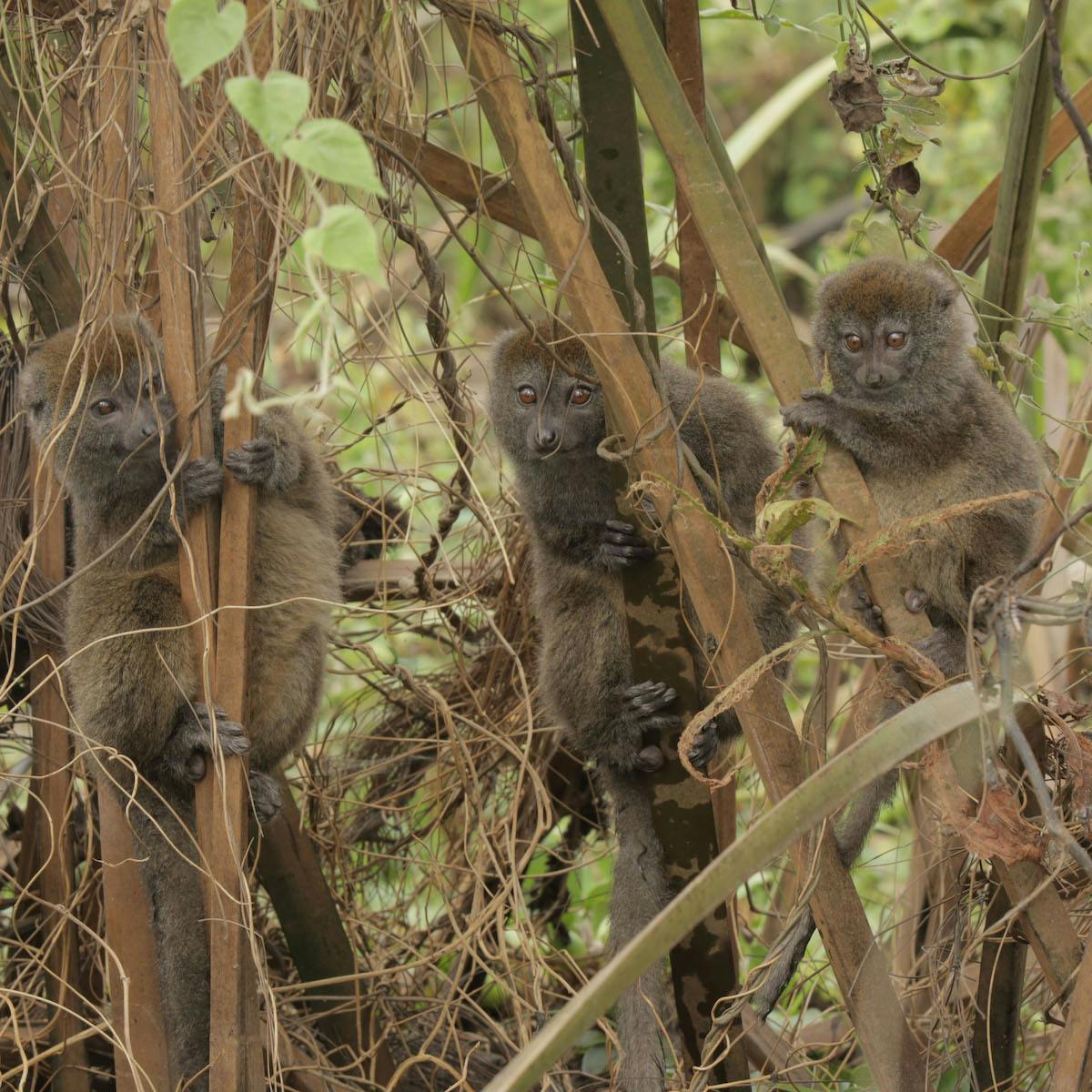

Take action now
Do you want to have a direct impact on climate change? Sir David Attenborough said the best thing we can do is to rewild the planet. So we run reforestation and rewilding programs across the globe to restore wild ecosystems and capture carbon.
Get involvedConservation or Exploitation
It’s crucial to think about the big picture when visiting wildlife abroad and to consider whether animals are suffering due to their involvement with the tourist market. There is a thin line between the conservation of plants and animals and their use for commercial purposes.
For instance, the captivity of dolphins and smaller whales (orca, beluga), which is banned in the UK, still operates within the law in many countries. It’s this trade, however that helps to incentivise the killing and capture of dolphins in Taiji, Japan. Pods of dolphins are chased by boats and rounded up into the cove; the “pretty” ones being taken for sale to aquariums and the rest slaughtered for consumption.
National Geographic exposed the captive wildlife trade in 2019. It shows how Thai zoos take tiger cubs from their mothers at birth, keep them in small cages and bring them out for photo ops. “The Mothers are speed bred to ensure that there are always baby cats for visitors to cuddle.” Natasha Daly writes.
Read on for even more useful responsible travel tips.
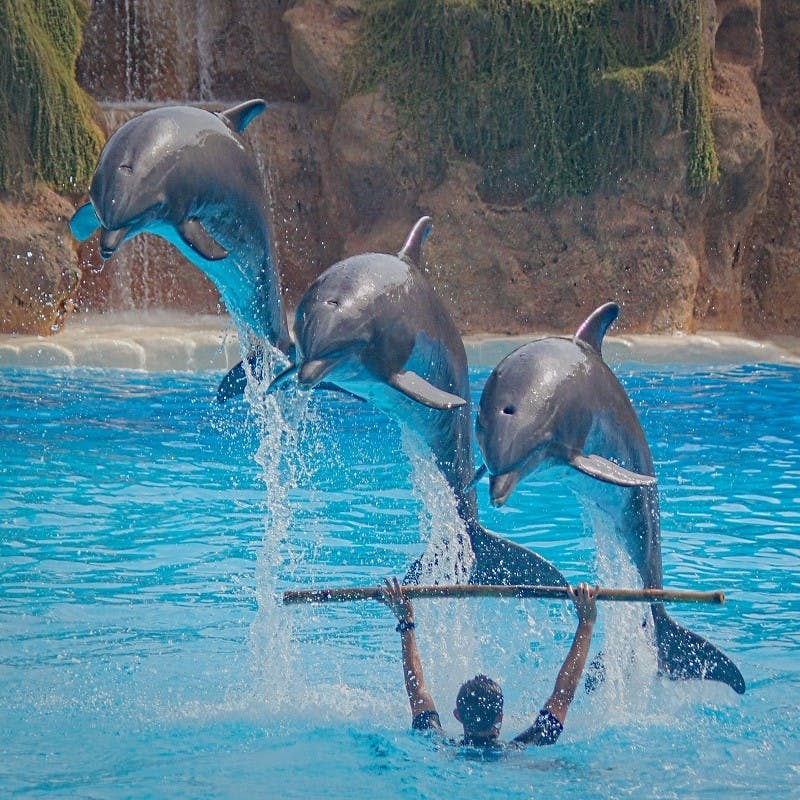
Social Media Is Putting Animals At Risk
The recent article in National Geographic demonstrates the ignorance of tourists engaging with “wildlife” for souvenir photos. It highlights the atrocities animals endure when employed by their owners for the tourist trade. There are apex predators such as bears and wolves showcased in Russia, used solely for social media photoshoot. The conditions that these wild creatures live in are a world away from their natural habitats.
This is the reality of the legal Wildlife trade, which is incidentally growing because certain people think sharing a photo of this kind on their social media is a good thing. An even crueler version of this is trophy hunting, a trade where big game animals are bred for sport hunting and the photo of the kill is coveted, along with parts of the animal such as the head, horns or antlers.
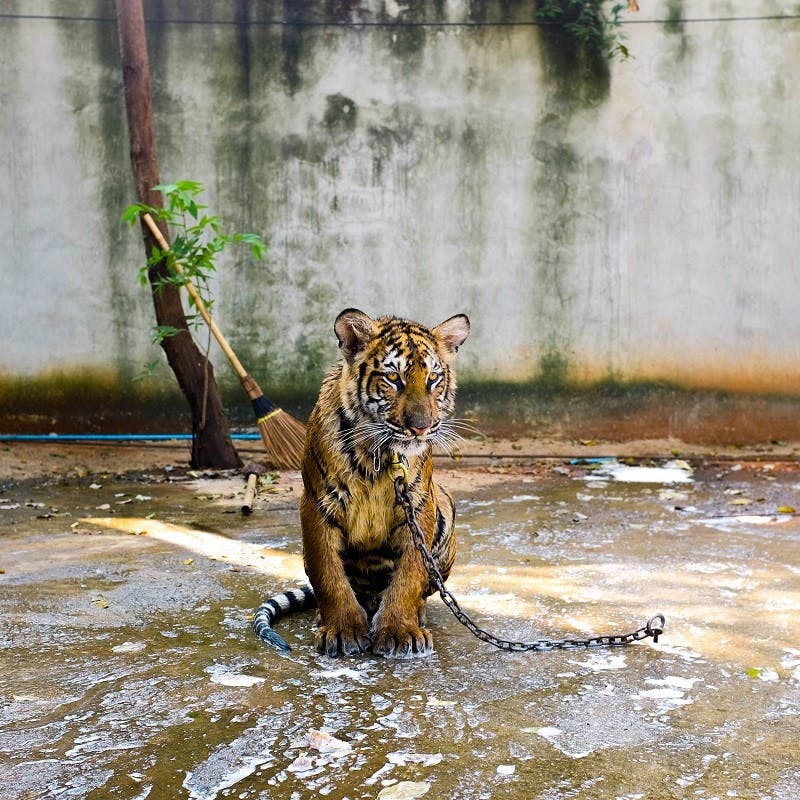
Responsible travel is the journey, sustainable travel is the destination.
Nombulelo Mkefa
The Illegal Wildlife Trade
Wildlife trade can be split into two sides of the same coin: legal and illegal. Interpol has estimated the extent of the illegal wildlife trade to be between $10 billion and $20 billion per year.
The darkest side of the illegal wildlife trade is the killing of endangered species such as elephants for ivory, tigers for their skins and bones and rhinos for their horns; unfortunately poaching is highly lucrative with rhino deaths in South Africa “increasing from 13 to 1,004 between 2007 and 2013.”
Keep these responsible travel tips in mind when at a restaurant, market or souvenir bazaar.
Despite international efforts to protect biodiversity; “illegal wildlife trafficking is a tragedy pushing many plants and animals to the brink of extinction and undermining years of conservation action.” states IUCN director general Inger Anderson in WWF report Not For Sale.
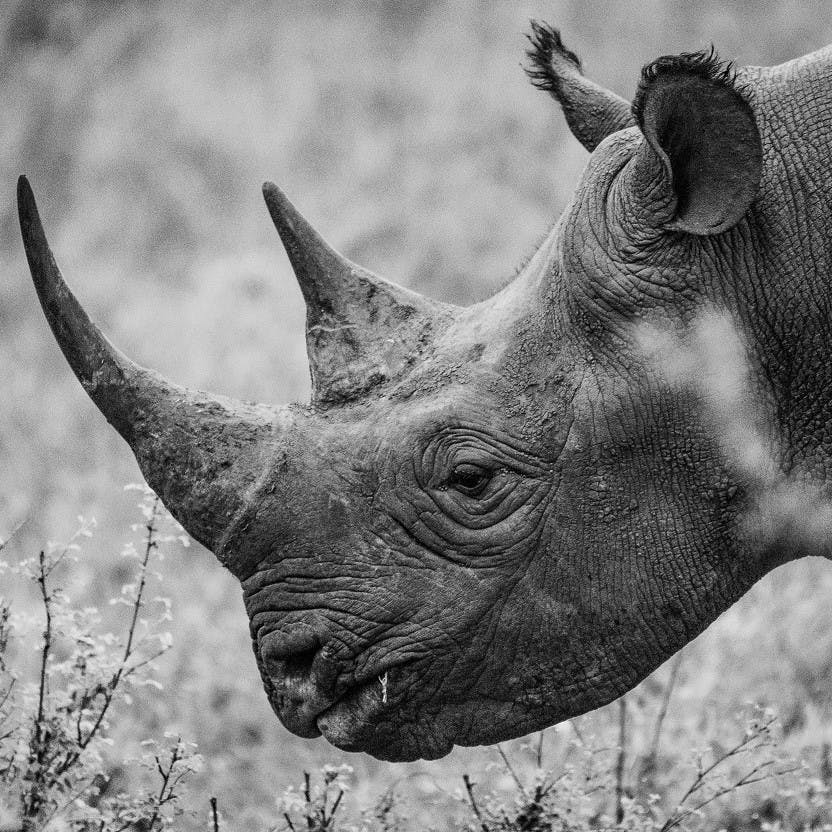
Champions of Responsible Travel Tourism
One film that exposes the wildlife trade, specifically the shark fin industry prevalent across Asia, is “Racing Extinction”. The film features Emmy Award winning cinematographer, photographer, diver, and marine conservationist Shawn Heinrichs talking about his career working undercover to document the 10 million sharks and rays being killed every year for their fins.
In Zimbabwe, an all-female team of rangers called the Akashinga protect the Phundundu Wildlife area from criminals intent on killing species such as leopard, elephant and rhino. They’ve been trained by a former special forces soldier and of the 37 recruits who started the training; only three quit. 16 were awarded full time jobs, their salary of which is reinvested back into their communities and families. They have experienced abuse and exploitation themselves, so have nothing left to lose when it comes to facing off against illegal poachers.
Over the last twelve months it has been inspiring to see so many travel companies setting up campaigns that genuinely help the environment. Greenwashing in the travel industry is definitely on the decline, where both the holidaymakers and employees at travel organisations, seek impactful and transparent projects that help fight climate change.
Take Not Just Travel who with every booking help fund “Carbon Hero” projects that have an comparatively greater impact on carbon mitigation. From protecting seagrasses in Portugal to supporting termites in West Africa, these Carbon Heroes can be up to 30 times more effective than tree planting!

How to See Wildlife Responsibly
Make sure you boycott circuses, dolphin shows, elephant rides and photos with wild animals in captivity, as this is the only way to reduce the popularity of these activities and diminish the demand for them. Avoid any souvenirs that include animal parts and be aware that any zoos, farms or safaris may well exploit animals so find affiliated conservation programmes and do your research prior to travel.
If connecting with the foreign flora and fauna is something that interests you then why not look into a holiday which supports local ecosystems. Nature Based Tourism is exactly that – where the creatures are wild and free, and tourists respect strict boundaries put in to protect the wildlife and serve their needs – not the other way around. A long running example of this is Biosphere Expeditions, where guests embark on ethical adventures and undertake citizen science to help protect the species they are visiting.
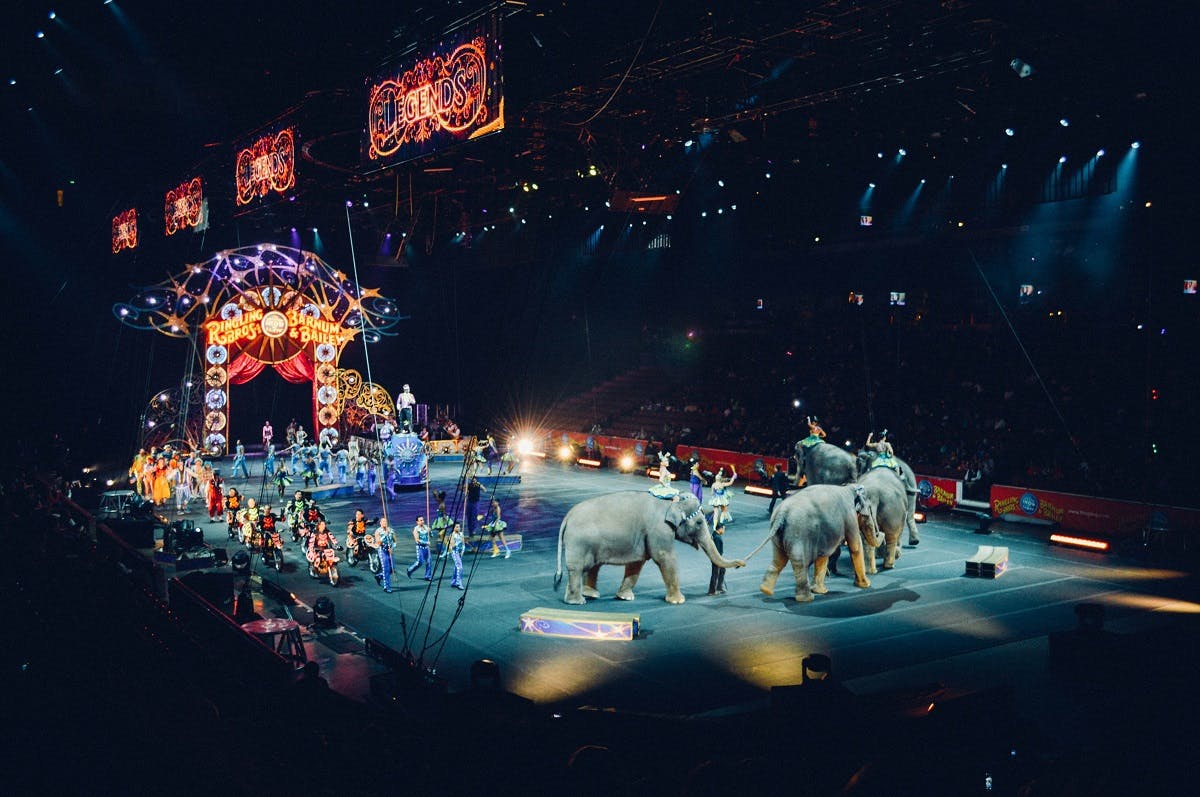
Sources & further reading

- “Sustainable Growth” - World Travel And Tourism Council
- “Taken For A Ride – The Conditions For Elephants Used For Tourism In Asia” - World Animal Protection